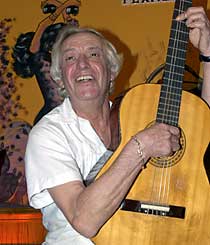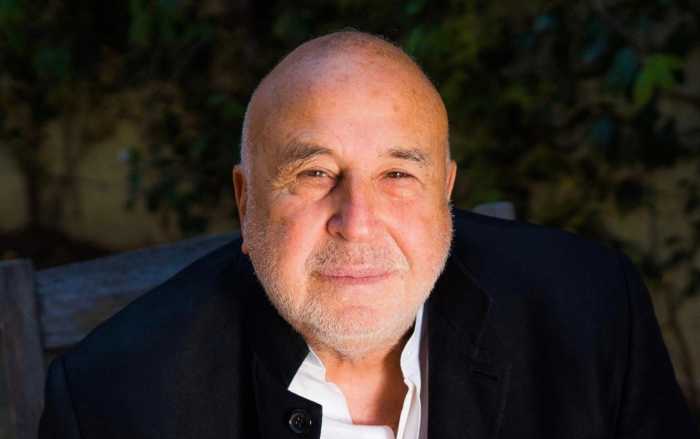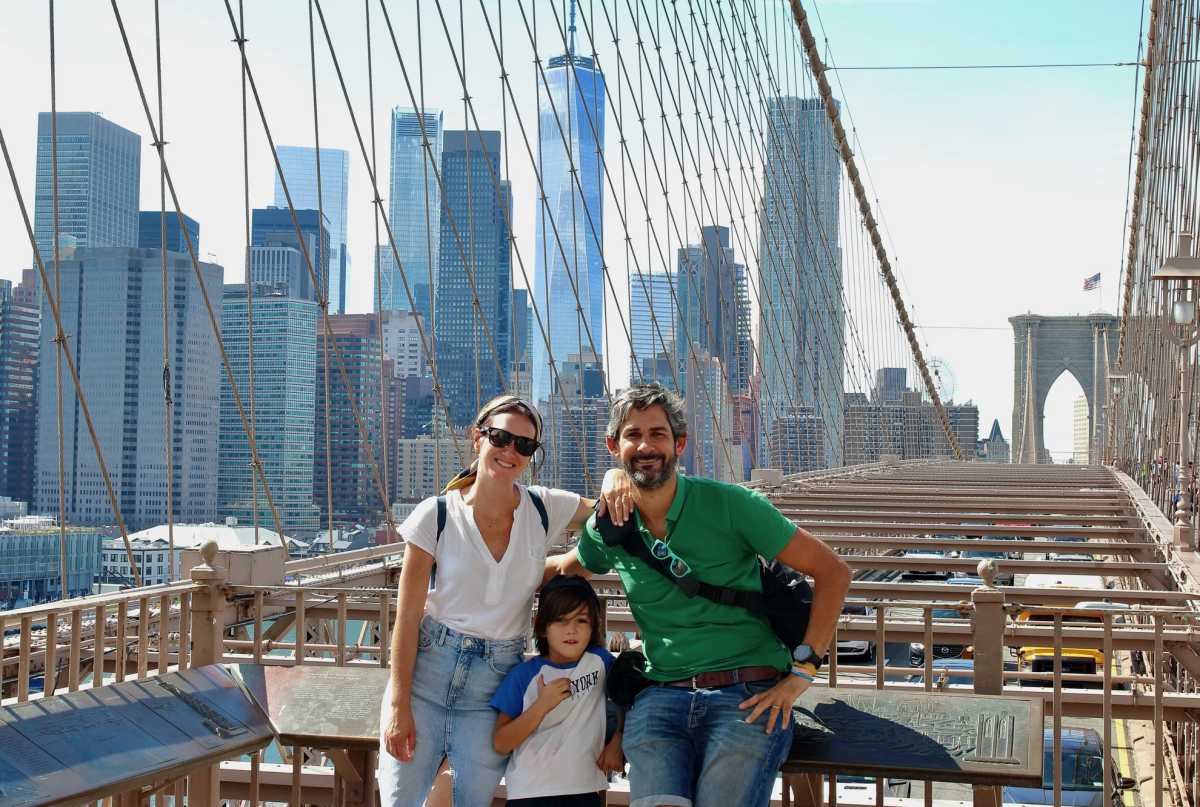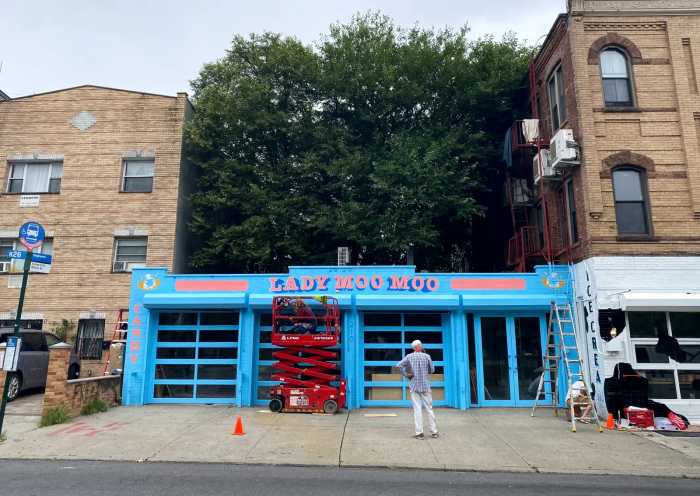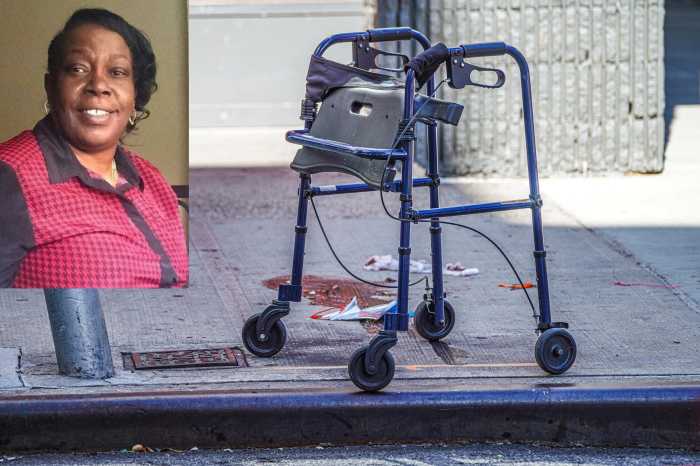When Pepe Canto was born at Long Island
College Hospital on Atlantic Avenue 30 years ago, the street
had a different feel.
Although its famous Middle Eastern restaurants began to open
there in the 1930s, the rest of the block suffered from the dwindling
shipping industry that drained the life from the docks at the
end of the avenue. A small Spanish community resided nearby,
and there was one Spanish restaurant, La Mancha, where everyone
congregated.
"La Mancha was there, on the corner, for 50 years,"
says Canto. "On the avenue, on the piers and ports, all
these sailors would come in from Spain and dock here. [Atlantic
Avenue] was nothing but Spanish places, a little Spanish colonial
area, but when they closed down the piers, people moved to Queens
or Jersey, or even back to Spain."
A decade ago, when La Mancha closed, Pepe Canto snatched up the
chef, Paco Mateo, and opened his own place, Meson Flamenco, as
an ode to his family, his heritage and the neighborhood that
no longer was. He not only serves pan-Spanish food – from the
more southern tapas (appetizers you eat at the bar) to traditional
Castilian delicacies like cabrales, a kind of blue cheese – he
also serves Spanish culture, in the form of flamenco dance and
guitar, unlike anywhere else in New York.
Canto inherited a love of flamenco from his parents, who emigrated
from the southern Spanish city of Seville in the 1960s, but have
since returned.
"I’m the only one that stayed," says Canto. Even if
he is American, Canto maintains some old-fashioned Spanish values.
Married at 22, and now the proud father of five children, Canto
has spent the last eight years building up his business as Atlantic
Avenue has shifted and changed all around him.
"When I opened up there was really no flamenco around in
New York," says Canto. "And there wasn’t much going
on on the avenue."
Just as Brooklyn has grown, so has the New York City flamenco
community. There’s even an annual flamenco festival at the end
of January at City Center in Manhattan, but Meson Flamenco is
still the leading venue for this art form, says Canto.
"There [are] a lot of aficionados in New York. It’s a family,"
says Canto. "But after the festival everybody comes down
here and we have a party all night – singing and dancing, just
like in Spain."
Flamenco was first danced and sung by gypsies in 15th-century
Andalucia, in southern Spain, and claims Moorish, Jewish and
Persian influences. Traditionally the artistic outlet of the
poor and oppressed, flamenco is a tripartite art, mixing song
(cante) with dance (baile) and guitar. Dancers sometimes use
a cajón, a type of hand drum, but mostly they use their
feet, hands and fingers to add beat.
The music and dance are beautiful: serious and passionate, with
much articulation in the ankles and wrists. It combines the percussive
beat of tap dance and the expressiveness of modern dance, all
set to the lyrical thrumming guitar. Watching flamenco here is
like stepping into another time, in another country.
When you walk into Meson Flamenco, you can feel both old-world
Spain and old-world Brooklyn. The cozy space – the dining area
can squeeze about 45 people – has a modern oak bar and is painted
in vibrant yellows, yet the music, the tapas and the crowd all
hark back to an earlier time.
"It’s a family place," says Canto. "You have young
people and old people both." On a typical weekend night
at Meson Flamenco, you’ll see a mixture of neo-Brooklyn yuppies
and old-school Brooklynites.
Meson Flamenco regularly hosts favorites like La Conja, the premier
New York City flamenco performer, according to Canto, and guitarist
Christian Puij. There are two shows, at 9:30 pm and 11:30 pm,
every Friday and Saturday night.
"When it warms up, I add Thursdays," says Canto. "It
all depends on how business is here on the avenue."
Atlantic Avenue is undergoing another transformation, as luxury
lofts spring up in buildings that were beginning to sag, and
small storefronts house local artists and craftspeople selling
their wares. Business has been tough in past months, with buildings
boarded and then renovated and part of the street closed for
improvements. And residents are still waiting to see what the
avenue will look like when the changes are completed. The Brooklyn
House of Detention, just a block away, closed after a $30 million
renovation, and no one knows what fate awaits it.
But while Atlantic Avenue anticipates its destiny, Canto is moving
forward. He’s added Cubano salsa on Sunday nights, and come spring,
he’ll test the waters in a new neighborhood, opening another
Spanish restaurant near Grimaldi’s pizzeria on Old Fulton Street
in DUMBO.
In the meantime, Meson Flamenco remains unchanged, a testament
to the past – and the future – of Spanish culture in Brooklyn.
Meson Flamenco is located at 135 Atlantic
Ave. between Clinton and Henry streets in Brooklyn Heights. For
more information, call (718) 625-7177.


